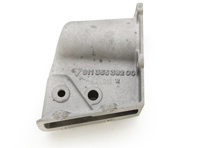
do not press the back button…

-
Engine Parts
-
- Engine Rebuild Parts Intermediate shaft (IMS) Oil System Parts Fuel System Parts Gaskets & Sets Radial Seal / RMS / Camshaft / Balance shaft Belts / Tensioners / Rollers Chains & Tensioners Timing covers and gaskets Engine Bearings / Shells Engine Valves / Guides / Springs Rocker Arms & Tappets Engine Bolts / Studs Engine Mounts Piston Rings Engine Cylinders / Liners / Pistons Connecting Rod Cylinder Head / Camshaft Carrier Camshaft covers / Gaskets Camshaft gears / sprockets and fixings Crankcase Parts Crankshaft & Parts Engine Tinware All Categories
-
Brakes
-
- Brakes Brake Pads & Disc Package Brake Disc Standard Brake Pads Standard SPORTS Brake Disc Brembo Standard brakes Brembo Racing brakes TEXTAR Brakes PAGID Racing Brakes Zimmermann Brakes Performance Friction Brakes EBC Brakes Black Diamond Performance Brakes Brake Pad Wear Sensors Brake Pad Anti-vibration shims Caliper Bolts / Disc Screws Pin Kit and Guide Plates Performance Brake Hoses Standard Brake Hoses Caliper and Brake Lines Brake Calipers Brake Caliper Upgrades Handbrake Shoes All Categories
-
-
Suspension & Steering
-
Transmission
-
- Gearbox / Transmission Clutch Kits Clutch Friction Plate Clutch Pressure Plate Clutch Release Bearings Clutch Cables & Parts Clutch Guide Tube Clutch Ring Gear Clutch Forks & Levers Clutch Bolts Gearbox Parts Driveshafts & Parts Gasket Sets / Gaskets / Seals / Lock Nuts Gearbox Mounts Gearshift Control Parts Flywheel / Torque CV Joints Kits CV Boots and Kits Cardan Shaft / Prop Shaft Transmission Parts Gearbox / Differential Oil Gearbox Sump / Oil Pan Used Transmissions / Gearboxes All Categories
-
-
Cooling & Heating
-
- Heating / Air Conditioning Air con condensers & desiccators Air con evaporators & expansion valves Air con pipes Air con belts Fans & cowlings Relays / Sensors / Resistors Compressors Heater flaps Blower Motors & Fans Heater blowers Heater hoses & pipes Heater cables Vents / Grilles Climate Control Temperature Sensors / Switches Heating / Air conditioning Housings
-
-
Electrical & Lighting
-
- Electrical & Relays Fuel Pumps Brake Light Switch Handbrake Switch Reverse Light Switch Headlamp Switch Window Switch Window Motors Window Mechanism Wiper Motor Wiper Mechanism Electric Horn SmartTop Control Units Ignition Switch Seat Switch Indicator / Wiper Stalk Switch Roof / Sun Roof Switch Relays / Fuses Washer pumps / bottles / jets Alarms / Security / Central Locking Electronic Control Units Wiper Switches Dashboard / Console Parts & Switches All Categories
-
-
Body & Exhaust
-
- Chassis / Bodywork Restoration Chassis / Repair Panels Front Lid Damper Rear Lid Damper Bonnets / Locks & Latches Boots / Rear Lid / Locks and Latches Rear lid / Tailgate Bumpers Front Bumpers Rear Door Handles | Locks | Keys Door Panels | Hinges | Striker Plates Window Lifters | Motors Wings Front & Parts Wings Rear & Parts Side Sill Panels Exterior Chassis Mouldings Mirrors & Parts Stone Chip Foils / Stickers Undertrays Chassis & Engine Front Wiper Arms & Blades Rear Wiper Arms & Blades Roof - Cabrio / Targa / Coupe / Speedster Roll Cages All Categories
-
-
Lubricants & Fluids
-
- Service Parts Service Kits OE Parts Oil Filters Air Filters Fuel Filters Belts All Types Spark Plugs IRIDIUM POWER Spark Plugs IRIDIUM RACING Spark Plugs Front Wiper Arms & Blades Rear Wiper Arms & Blades Gearbox Service Parts Porsche Classic Motor oil Engine Oil & Lubricants - Mobil Engine Oil & Lubricants - Total Engine Oil & Lubricants - Castrol Engine Oil & Lubricants - Motul Engine Oil & Lubricants - Millers Oils NanoDrive Engine Oil & Lubricants - Millers Oils Fuel Additives Garage PPE
-
-
All Parts
-
- Parts Accessories Chassis / Bodywork Brakes Clothing & Gifts Electrical & Relays Engine Cooling Engine Electrical Engine Rebuild Parts Engine Tuning Exhausts Exterior Styling / Spoilers Gearbox / Transmission Heating / Air Conditioning Hydraulics Interior & Accessories Incar / Multimedia Lighting Mats & Carpets Motorsport and Off-Road Pedal Cluster Rubber Seals Seats & Seat Belts All Categories
-
- Back to main website




Enter your VAT number here and click Verify:
Your details have been verified. VAT number registered to:
,
.
Your order will now be zero rated for VAT purposes. We reserve the right to verify these details after your order request has been made and reinstate VAT if required.
Your VAT details were not recognised or were invalid. Your VAT number must be matched to your Billing Country as specified above. This is currently specified as . You do not need to enter the country code part of your VAT number as this has already been selected in your billing address details above.
The VAT number checking service is currently offline. Please supply your VAT details within the comments or special instructions field below and we will apply a VAT discount after placing your order request.
Brake Booster

- Porsche 911 1978-1983 3.0L / SC
- Porsche 911 1984-1986 3.2L
- Porsche 911 1987-1989 3.2L G50
- Porsche 911 1975-1977 3.0L Turbo (930)
- Porsche 911 1978-1989 3.3L Turbo (930)

Fits:
Porsche 911 78-89 Right hand drive cars
Click 'Zoom in' for large parts diagram.
Diagram ref no 14
Related reference numbers
Related, superseded, cross reference or alternative numbers for comparison.
91135538200
The product you are viewing cross references to these numbers
High-Quality Brake Boosters for Safe, Effortless and Consistent Braking Performance
Brake boosters—also known as power brake boosters—are essential hydraulic components that amplify the force applied to the brake pedal. By using vacuum or hydraulic pressure assistance, the brake booster helps deliver strong braking performance with minimal driver effort. Whether driving a classic car or a modern performance vehicle, a properly functioning brake booster ensures predictable stopping distances, stable pedal feel and safe braking under all conditions.
A healthy booster is key to driving comfort, road safety and confidence—especially in emergency braking situations or repeated heavy braking.
What Brake Boosters Do
Brake boosters enhance braking capability by performing
several critical functions:
- Amplifying
pedal input, providing stronger braking force with less effort
- Improving
braking response for smoother, quicker stopping
- Maintaining
stable brake pressure across varying driving conditions
- Supporting ABS and advanced brake control systems
- Reducing
driver fatigue during heavy or frequent braking
- Helping maintain consistent performance in both low-speed and high-speed situations
With a properly functioning booster, brakes feel more responsive, controlled and progressive.
Why Brake Boosters Commonly Fail
Brake boosters can wear out due to age, heat, vacuum loss or
hydraulic issues. Common failure causes include:
- Vacuum
leaks from damaged hoses or internal seals
- Diaphragm
failure leading to loss of brake assistance
- Internal
corrosion caused by moisture buildup
- Faulty
check valves preventing vacuum retention
- Brake
fluid contamination damaging internal components
- Heat-related
degradation of diaphragms and seals
- Wear due to high mileage or repeated heavy braking
Symptoms often include a hard brake pedal, increased stopping distances, hissing noises, inconsistent pedal feel or warning lights.
Why You Should Replace a Faulty Brake Booster
Replacing a worn or failing brake booster with a high-quality, precision-engineered alternative designed to match original braking performance ensures your vehicle remains safe and responsive.
Key benefits include:
- Restored braking assistance and lighter pedal effort
- Improved stopping power and safety in all conditions
- Consistent pedal feel with predictable braking response
- Prevention of brake fade due to excessive pedal force
- Reliable operation of vacuum-dependent brake systems
- Peace of mind during emergency or high-load braking situations
A new brake booster significantly improves braking comfort and reliability, making it an essential maintenance replacement for any vehicle with reduced brake assist.
Monday-Friday: 8.30am - 5.30pm (GMT)
Saturday: Closed
Sunday: Closed



